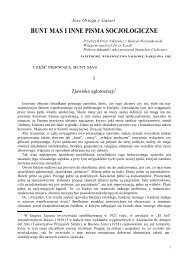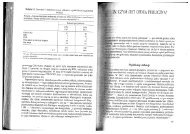Business Tourism Partnership Mission
Business Tourism Partnership Mission
Business Tourism Partnership Mission
You also want an ePaper? Increase the reach of your titles
YUMPU automatically turns print PDFs into web optimized ePapers that Google loves.
contact, customer interaction and the ability for the customer<br />
physically to feel, see, taste, smell, test and try the product<br />
• More organisers are looking to increase the number of public<br />
shows. Public shows are seen as being informative, as well as<br />
providing marketing and sales opportunities, brand building<br />
and entertainment, all of which add to customer value and<br />
experience<br />
• Organisers will continue to succeed in direct proportion to<br />
their ability to identify niche markets for new exhibitions,<br />
which are targeted directly for a specific market<br />
• The exhibition industry is continually endeavouring to increase<br />
the ‘internationality’ of its shows in order to enhance the<br />
opportunity for exhibitors to increase their export markets<br />
• The exhibition segment is taking important steps forward to<br />
meet the demands for sustainability. Action is being taken to<br />
improve performance in waste management and<br />
environmental issues, adopting new techniques to improve<br />
recycling and reduce overall waste<br />
• Successful event exhibition formats are being cloned and<br />
rolled out to regional and international markets<br />
• Other sectors of the media mix are recognising the benefits of<br />
face-to-face marketing and are investing in the medium to<br />
communicate with their audiences.<br />
e) INCENTIVE TRAVEL<br />
Definition and Background<br />
Incentive travel is a tool used by organisations to motivate their<br />
staff and/or external sales agents, with the objective of improving<br />
performance at both individual and corporate levels. This tool offers<br />
individuals or teams the chance to qualify for an exceptional travel<br />
experience, subject to their attaining preset goals.<br />
While corporate organisations routinely offer a range of employee<br />
rewards, including vouchers, merchandise and cash bonuses, travel<br />
has been found to be the most effective motivator. It is also the<br />
most expensive, with rewards ranging in value from £500 to £5,000<br />
per head. Travel rewards are generally used by those industries<br />
producing a product or service that carries a high profit margin –<br />
such as cars, computers and financial services. Companies in these<br />
sectors invest accrued profit from sales to fund incentive travel<br />
programmes, which will, in turn, boost sales.<br />
The earliest recorded incentive travel programme took place in<br />
1906, but the industry only became fully established in the 1960s,<br />
coinciding with the onset of global tourism. The United States was<br />
34




